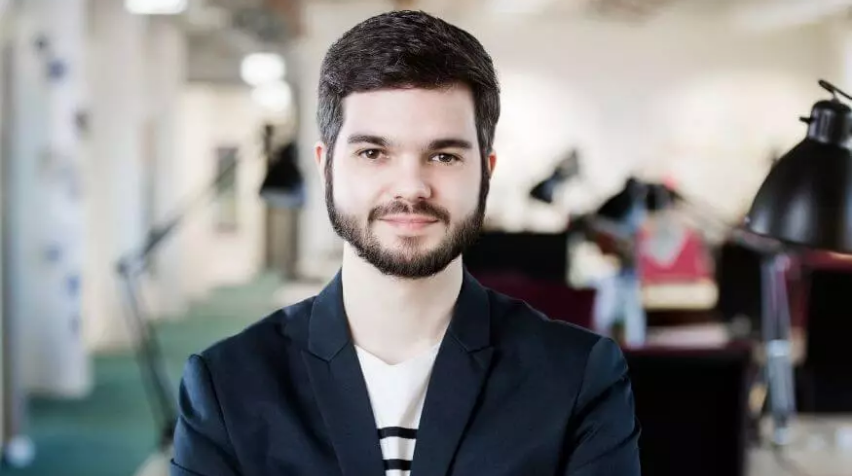Last week, Startup Genome (SG), in partnership with Global Entrepreneurship Network, released the 2020 Global Startup Ecosystem Report. Since TechQuartier (TQ) has been the regional Member, fostering the visibility of our ecosystem worldwide, we decided to discuss some of the points together with Dominik Zborek , Public Sector & Government Affairs Manager at TQ.
The GSER is the world’s most comprehensive and widely read research on startups with 250 ecosystems studied, a ranking of the top 30 and 10 runner-up global ecosystems, and a top 100 ranking of emerging ecosystems. Since 2012, this research effort has provided rich insights and guidance to public and private leaders in startup ecosystems.Frankfurt has been featured and highlighted in the previous three editions. In case you missed it or you are curious, here is the analysis from 2018, here´s the one from 2019. Regarding this year, the data is summarized here.
Dominik, what are the main insights of this year`s report and how do you interpret them?
For the Frankfurt ecosystem, the study rightly points out that there is not much to be seen from an outside perspective in comparison to other emerging ecosystems. While this year’s data is mainly relying on publicly available secondary data such as publicly disclosed funding rounds and available regional statistics, it still raises the point that the region has all the necessary components and resources it needs to build a fully vibrant and globally connected startup ecosystem. But one flaw of such an approach is that it lacks everything that is happening behind closed doors. It overemphasizes communicative and marketing-driven behavior and neglects what happens below the shiny cover.
Frankfurt strength is its weakness here: being a very active and vibrant B2B ecosystem. B2C ecosystems are a lot more vocal due to the nature of their businesses. Additionally, mid-european founders have a slightly different mindset when it comes to external funding in very early stages as well as doing marketing before being “live.” These effects result in any outsider thinking Frankfurt must be lacking activity while the insiders see all that’s really going on. To gain a better picture, Frankfurt would therefore need to regularly do a fully-fledged survey. The German Startup Monitor maybe able to complement the strengths of the GSER with more in-depth analysis, while the GSER focuses on overall ecosystem development trends.
This years’ Global Startup Ecosystem Report highlights the vast diversity among startup ecosystems. The authors rightly say that there won’t be another Silicon Valley, because successful ecosystems create their own stories. Startup Genome therefore suspects that there will be 20-30 Silicon Valleys in the upcoming years. This translates into the reports’ story to highlight emerging ecosystems even more.
A great highlight is that this year Frankfurt is ranked in the TOP 30 EUROPEAN ECOSYSTEMS for Funding. Funding seems to be a big issue for an early-stage ecosystem, could this indicator bring some good hopes for further developments? How do you explain this positive shift?
Funding, knowledge and talent resources are some of our ecosystems strengths. But they need to be activated. It’s true, we have a lot of early stage funding capacities in the region. That’s already a good foundation! But it’s dry gunpowder that needs a spark to be activated and put to its most efficient use.
We see some growth in early stage funding already and Frankfurt performs relatively well in comparison to similar ecosystems. What we truly lack is putting larger sums to use in order to generate larger funding rounds and thus more scale-ups. We have a lot of smaller funding rounds, but need to work on large ones to bring the ecosystem to the next level.
Additionally, young ecosystems lack a sufficient amount of serial entrepreneurs that share their scaling knowledge and invest on their own. This “smart money“ is what differs average from successful ecosystems. With Frankfurt being a relatively young ecosystem, the lack of enough serial founders is normal at this stage and we already see positive developments in this area.
Also, something that persists from last year, Frankfurt is included in the TOP 20 European Ecosystem Knowledge. In that regard, TQ has been developing a lot of programs with Students. Are you able to report some good success stories?
Frankfurt has one of the highest concentrations of universities and thus potential talent in Germany. There are many bright minds working and researching our “tomorrow,” but a lot of the talent in the region needs to be exposed to entrepreneurial adventures and opportunities. At TechQuartier we foster change by showing curious minds how to embrace entrepreneurship. With our talent programs like TechTalents with Eintracht Frankfurt, we teach them the basics of entrepreneurship, team formation and let them work on challenges to design solutions. We just finished our second edition of TechTalents and it was a blast! More than 120 students participated – maybe some of which might be the serial founder of tomorrow. Currently we’re working on the third edition, which will be taking place this fall.
More on a national basis, SG highlights German Policymakers to be supporting startups in this dramatic times of Corona. What are some examples of initiatives that the TQ implemented for the community? What are some examples of other initiatives that were helpful?
The German federal and state governments worked hard to ensure that companies will be able to sail through the current crisis. While startups were not at the core of the individual measures at first, the government has since made some good progress into the right direction. It could have been faster, but I have a hard time imagining a similar response in the 2008/09-crisis.
At TQ we tried to help by what we are best at – connecting community and increasing information flows. We did several (virtual) town hall events that helped spread the necessary information in a timely manner while at the same time gave the startup community a direct access to policy makers and public officials. The Frankfurt ecosystem is one of the most globally interconnected. That definitely helped to counter the negative repercussions of the pandemic crisis.
Last question about the report, taking into consideration the Ecosystem Lifecycle Model, and keeping in mind the current indicators: When do you expect Frankfurt to change from the Activation phase to a new Globalization Phase?
I think in certain areas we already are in the globalization phase, especially when it comes to international relations of startups & founders or the expertise in verticals like B2B finance or AI. But we could definitely improve in terms of funding rounds or startups founded. The key for a sustainable development of our ecosystem will be to activate more potential founders and create highly interconnected clusters, e.g. for AI.
Would you like to highlight some projects that can support this development?
We see a lot of positive developments in the recent months. The region grows ever closer, initiatives are converging into the right direction and stakeholders are a lot more open to tackle issues across organizations. The next step is to go international – linking regional activities with European neighbors to exchange knowledge and form an European ecosystem with local strengths. This will only work if Frankfurt will be able to sustainably create a critical mass of startups. This effort needs curious minds and students willing to embrace the adventure of forming new ventures. That is why we concentrate a substantial share of TechQuartiers’ resources on education.
An article by Pedro Ferreira.

